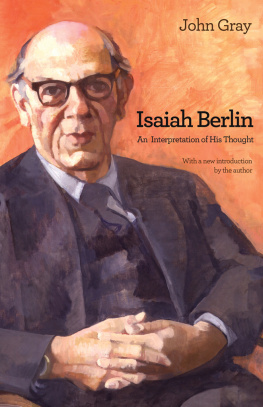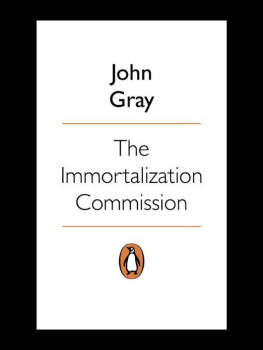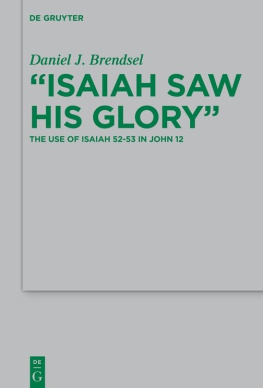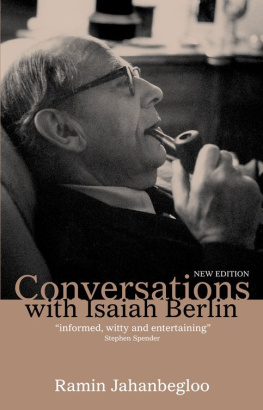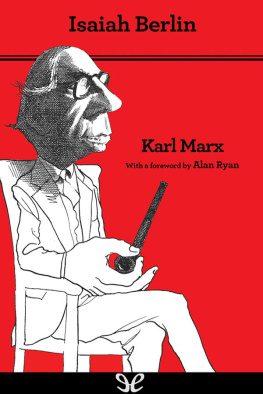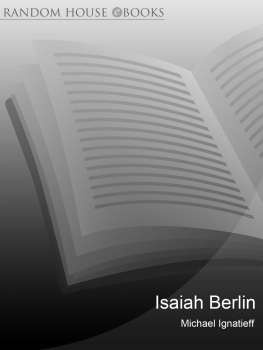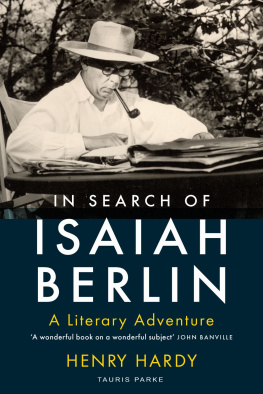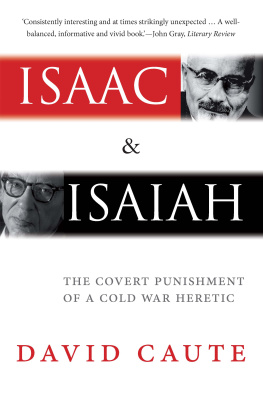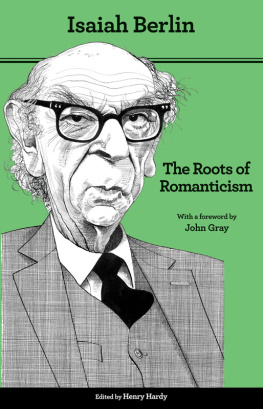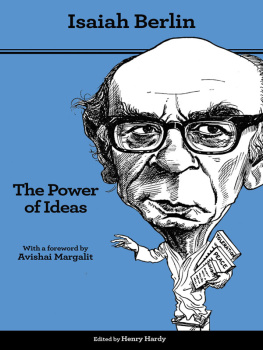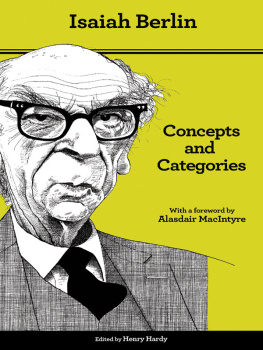John Gray - Isaiah Berlin: An Interpretation of His Thought
Here you can read online John Gray - Isaiah Berlin: An Interpretation of His Thought full text of the book (entire story) in english for free. Download pdf and epub, get meaning, cover and reviews about this ebook. year: 2020, publisher: Princeton University Press, genre: Science. Description of the work, (preface) as well as reviews are available. Best literature library LitArk.com created for fans of good reading and offers a wide selection of genres:
Romance novel
Science fiction
Adventure
Detective
Science
History
Home and family
Prose
Art
Politics
Computer
Non-fiction
Religion
Business
Children
Humor
Choose a favorite category and find really read worthwhile books. Enjoy immersion in the world of imagination, feel the emotions of the characters or learn something new for yourself, make an fascinating discovery.
Isaiah Berlin: An Interpretation of His Thought: summary, description and annotation
We offer to read an annotation, description, summary or preface (depends on what the author of the book "Isaiah Berlin: An Interpretation of His Thought" wrote himself). If you haven't found the necessary information about the book — write in the comments, we will try to find it.
Isaiah Berlin: An Interpretation of His Thought — read online for free the complete book (whole text) full work
Below is the text of the book, divided by pages. System saving the place of the last page read, allows you to conveniently read the book "Isaiah Berlin: An Interpretation of His Thought" online for free, without having to search again every time where you left off. Put a bookmark, and you can go to the page where you finished reading at any time.
Font size:
Interval:
Bookmark:

Isaiah Berlin
ISAIAH BERLIN
AN INTERPRETATION OF HIS THOUGHT

With a new introduction by the author
JOHN GRAY
PRINCETON UNIVERSITY PRESS
PRINCETON AND OXFORD
Copyright 1996, 2013 John Gray. All rights reserved.
Requests for permission to reproduce material from this work should be sent to Permissions, Princeton University Press
Published by Princeton University Press, 41 William Street, Princeton, New Jersey 08540
In the United Kingdom: Princeton University Press, 6 Oxford Street, Woodstock, Oxfordshire OX20 1TW
press.princeton.edu
Cover art: Detail from Sir Isaiah Berlin by Sir Lawrence Gowing, 1982 (NPG 5523).
Courtesy of and National Portrait Gallery, London.
Library of Congress Cataloging-in-Publication Data
Gray, John, 1948
Isaiah Berlin : an interpretation of his thought / John Gray ; with a new introduction by the author.
pages cm
Includes bibliographical references and index.
ISBN-13: 978-0-691-15742-9 (pbk. : alk. paper)
ISBN-10: 0-691-15742-1 (pbk. : alk. paper)
eISBN: 978-0-691-21338-4
1. Berlin, Isaiah, 1909-1997. 2. Political scienceGreat Britain.
I. Title.
JC257.B47G73 2013
320.092dc23 2012041582
British Library Cataloging-in-Publication Data is available
R0
THERE ARE MANY PEOPLE and institutions without whose support and assistance this book could not have been written. The Principal and Fellows of my College have given me periods of leave from my duties there without which my thoughts on the issues raised by the thought of Isaiah Berlin would never have germinated. My debt to my College is profound. The book itself was written during two periods of residence at the Social Philosophy and Policy Center at Bowling Green State University in Ohio. I am indebted to the Directors and staff of the Center for their manifold help in enabling me to complete this project.
I owe a special debt of gratitude to Dr Henry Hardy, Fellow of Wolfson College, Oxford, Isaiah Berlins editor and one of his literary executors. The generosity and goodwill, along with the patience and erudition, which Henry Hardy has shown me throughout this venture have gone far beyond any imaginable call of duty on his part. I am sure that the book could not have been completed in anything like its present form without his unfailing support.
Without the initial stimulus of a telephone call from my publisher, Stuart Proffitt of HarperCollins, I would not have dreamt of trying my hand at this book. For his confidence in the project, and his comments on it, I am very grateful.
A number of people have given me written and oral comments on the book. I wish especially to thank David Conway, Henry Hardy and G. W. Smith for their detailed written comments on early drafts. Discussions with Roger Hausheer and Loren Lomasky have clarified my thoughts on many of the issues it addresses. Conversations over many years with Joseph Raz have eft a deep mark on my thought of which there are many traces in the book.
To express my debt to Isaiah Berlin himself is a task beyond my powers. For over twenty years my thoughts have grown under the stimulus of his extraordinary conversation. My enormous intellectual debts to him will be obvious to any reader of this book or of my other writings. At the same time, he has not seen this study, and neither the interpretation of his thought, nor the critical assessment of it that I attempt, has his authority. I could not have written it as I have done if I did not know Isaiah Berlin as I do, but it is my book, not his, all the same. All the usual disclaimers, which apply to all those who helped me with this book, apply with special force to Berlin himself.
John Gray
Jesus College, Oxford
July 1994
I
In the last conversation I had with him before he died, I asked Isaiah Berlin if there was one author who more than any other had shaped his way of thinking. Without a moments hesitation, he replied, Herzen. I was not surprised by Berlins response. His writings are full of admiring references to the nineteenth-century Russian radical author, and there are many parallels between Berlins attitudes and those he found in Alexander Herzen. In the Introduction he contributed to an edition of Herzens memoirs, My Past and Thoughts, Berlin wrote: Like the more extreme of the left wing disciples of Hegel, in particular like the anarchist Max Stirner, Herzen saw danger in the great magnificent abstractions the mere sound of which precipitated men into violent and meaningless slaughternew idols, it seemed to him, on whose altar human blood was to be shed tomorrow as irrationally and uselessly as the blood of the victims of yesterday or the day before, sacrificed in honour of older divinitieschurch or monarchy or the feudal order or the sacred customs of the tribe, that were now discredited as obstacles to the progress of mankind.
Much of Berlins work can be read as an exercise in demystifying these magnificent abstractionsnot in order to argue that they are hollow or meaningless but instead to show that they contain, or more often conceal, fundamental conflicts among human values. Uncovering the moral conflicts that are hidden in our most cherished ideals was a major part of Berlins life work. The method he adopted to reveal these conflicts involved a kind of analysis; but not the type that prevailed in Oxford when he returned to being a tutor in philosophy at New College after the Second World War. Though he produced a number of papers in the style of analytical philosophy and admired the clarity of thinking he observed in some of the chief practitioners of the school, Berlin was not following their lead when he examined moral and political ideas. The intellectual path in which he was travelling was not that of his Oxford contemporaries or any variety of Anglo-American philosophy. When, following Berlins response to my question about which thinker had most formed his thinking, I asked, Not Hume, or John Stuart Mill? he replied, again without hesitation and quite firmly, No, Herzen.
II
It is widely believed that Berlin gave up philosophy when he returned to Oxford and turned instead to intellectual history. This common story is supported by Berlins testimony. Writing in the introduction to a collection of his philosophical essays, Berlin recounts
a conversation I had with the late Professor H. M. Sheffer of Harvard, whom I met there towards the end of the war when I was working at the British Embassy in Washington. Sheffer, one of the most eminent mathematical logicians of his day, said to me that in his opinion there were only two philosophical disciplines in which one could hope for an increase of permanent knowledge: one was logic, in which new discoveries and techniques superseded old onesthis was a field in which genuine progress occurred, as it did in the natural sciences or mathematics; the other was psychology, which he thought of as being in some respects still philosophicalthis was an empirical study and obviously capable of steady development..... In the months that followed, I asked myself whether I wished to devote the rest of my life to a study, however fascinating and important in itself, which, transforming as its achievements undoubtedly were, would not, any more than criticism or poetry, add to the store of positive human knowledge. I gradually came to the conclusion that I should prefer a field in which one could hope to know more at the end of ones life than when one had begun, and so I left philosophy for the field of the history of ideas, which had for many years been of absorbing interest to me.
Font size:
Interval:
Bookmark:
Similar books «Isaiah Berlin: An Interpretation of His Thought»
Look at similar books to Isaiah Berlin: An Interpretation of His Thought. We have selected literature similar in name and meaning in the hope of providing readers with more options to find new, interesting, not yet read works.
Discussion, reviews of the book Isaiah Berlin: An Interpretation of His Thought and just readers' own opinions. Leave your comments, write what you think about the work, its meaning or the main characters. Specify what exactly you liked and what you didn't like, and why you think so.

